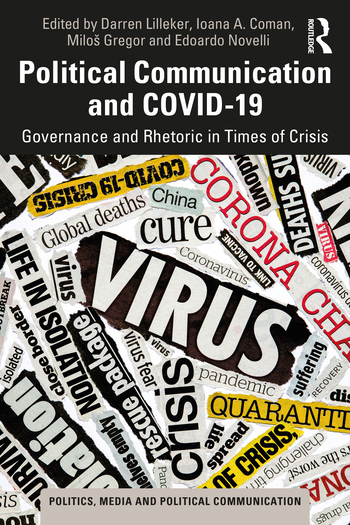Andrea Medrado has published a new book chapter entitled “More than just a little flu, co-authored with Icaro Joathan (UFF) and Thaina de Medeiro (Coletivo Papo Reto– Favela Mediactivism Collective). The chapter analyses the Brazilian Government’s handling of the Covid-19 pandemic, contrasting it to civil society responses, such as that led by Coletivo Papo Reto. . The chapter is part of an edited collection on Political Communication and COVID-19: Governance and Rhetoric in Times of Crisis.
The book, which was a product of the first lockdown in the UK, is available for pre-order on Routledge’s website. The publication was edited by Darren Lilleker, Ioana Coman, Milos Gregor, and Edoardo Novelli. The paperback copies will come out early next year.

The edited collection compares and analyses the most prominent political communicative responses to the outbreak and global spread of the COVID-19 strain of coronavirus within 27 nations across five continents and two supranational organisations: the EU and the WHO. The book encompasses the various governments’ communication of the crisis, the role played by opposition and the vibrancy of the information environment within each nation.
The chapters analyse the communication drawing on theoretical perspectives drawn from the fields of crisis communication,
political communication and political psychology. In doing so the book develops a framework to assess the extent to which state communication followed the key indicators of effective communication encapsulated in the principles of: being first; being right; being credible; expressing empathy; promoting action; and showing respect. The book also examines how communication circulated within the mass and social media environments and what impact differences in spokespersons, messages and the broader context has on the success of implementing measures likely to reduce the spread of the virus. Cumulatively, the authors develop a global analysis of the responses and how these are shaped by their specific contexts and by the flow of information, while offering lessons for future political crisis communication.
This book will be of great interest to students and researchers of politics, communication and public relations, specifically on courses and modules relating to current affairs, crisis communication and strategic communication, as well as practitioners working in the field of health crisis communication.
.
Photo by Rafaela Biazi on Unsplash












